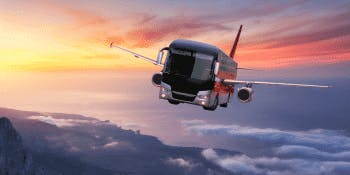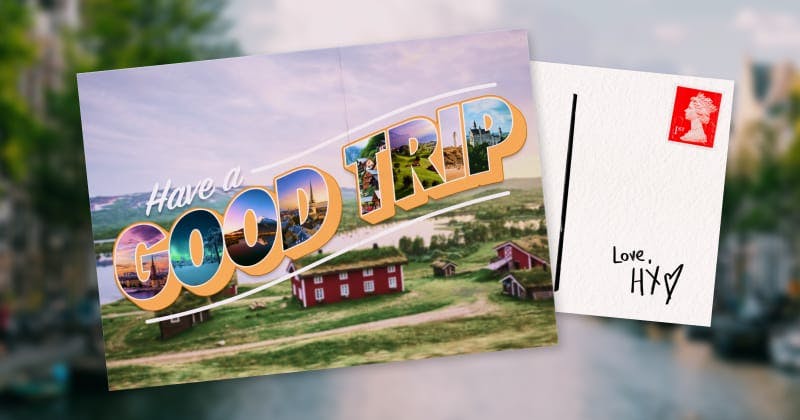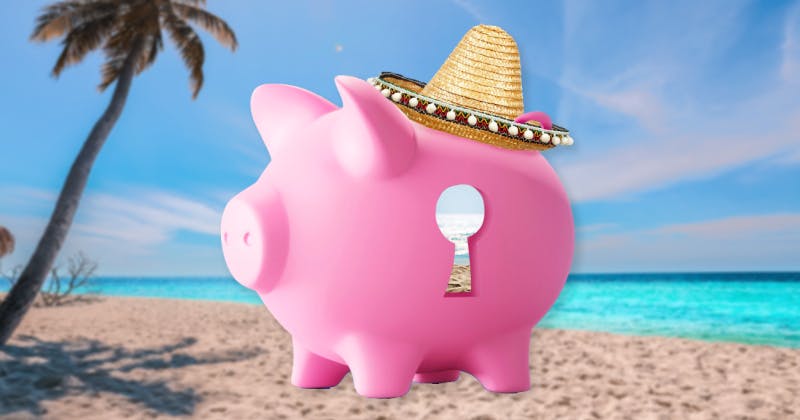
France Travel Guide
Great wine, iconic landmarks and stunning landscapes. There are countless reasons why France consistently ranks as the most visited country in the world. Here's everything you need to know before you travel.
What you'll find in this guide:
Top things to do in France
Practical Information
Weather in France
When to visit France
Getting to France
Getting around France
Where to stay in France
Best beaches in France
What to eat in France
France for families
Accessibility in France
France for LGBTQI+ travellers
Sustainability in France
Some facts about France
France consistently ranks as the most visited country in the world and it’s easy to see why. The perfect mix of historic sites, stunning landscapes and renowned cuisine means it’s got something to entertain pretty much any traveller.
Speaking of historic sites, the Eiffel Tower is probably the most famous of the lot. Opened in 1889, it’s repainted every seven years which takes roughly 60 tonnes of paint and around 18 months to complete. It’s probably worth it though, as it’s the most-visited monument with an entrance fee in the world, and the views from the top are pretty incredible.
Food’s a big deal here. It has the most Michelin-starred restaurants in the world, and the quality and tradition behind its beloved baguettes are protected by law – the ‘Décret Pain’ outlines the specific characteristics that a baguette must have to be called one.
The diversity in France is huge – thanks to its overseas territories, it spans the most time zones of any country in the world. The experience you’ll have will vary significantly from region to region, which is part of the reason why people keep going back for more.
Practical Info
Culture and etiquette
Religion
France is very diverse when it comes to religion. Around a third of the population aren’t religious at all, while most of the country’s religious population are Christian.
Tipping
There’s no expectation to tip in France, and a 15% service charge is normally added to your bill anyway. Feel free to tip if you think the service has been exceptional, but you can leave any tip-based worries at home. You don’t need to tip after a taxi journey either, although we’d usually round up the fare to the nearest euro.
Smoking
Smoking is banned in enclosed public spaces including restaurants, bars and public transport.
Language 101
The official language is French. English is spoken at most tourist attractions and restaurants, but it would definitely be handy to learn a few key phrases before you go – locals will appreciate it too.
Helpful French phrases:
- Hello – Bonjour
- Goodbye – Au revoir
- How are you? – Ça va?
- Yes – Oui
- No – Non
- What's your name? – Comment t'appelles tu?
- My name is – Je m'appelle
- Please – S'il vous plaît
- Thank you – Merci
- How much is it? – C'est combien?
- Where is? – Où est?
- Numbers:
- One - Un
- Two – Deux
- Three – Trois
- Four – Quatre
- Five – Cinq
Jabs, visas and other advice
For up-to-date advice on jabs, visas and other foreign advice, we recommend following the government's website.
Emergency numbers
For any emergency you can call 112.
TopWhat's the weather like in France?
France is a pretty big place, so the weather you’re going to get depends on where you decide to travel.
If it’s sun you’re after, the south of France is your best bet. The French Riviera enjoys a Mediterranean climate, which means average highs of 27°C in July and August and very little rain. Spring and autumn are fairly comfortable too, usually reaching around 20°C, although winters are a little chillier and tend to see a fair bit of rain.
At the other end of the country, the climate in northern France is similar to that of the UK. You can expect mild summers, chilly winters and a good chance of wet weather in places like Brittany and Boulogne-sur-Mer.
When's the best time to visit France?

Well that depends on what you fancy doing when you get there.
June, July and August are when France is at its hottest, so sun-seekers should head there then. It’s also when many of the country’s biggest events take place, including Le Mans 24-hour race, Bastille Day and Tour de France.
Summer can be very crowded though, so those looking for a bit of relative peace should head there in spring or autumn. You’ll still get some pretty decent weather, plus it’ll likely be cheaper out of peak season.
Skiing in the Alps or the Pyrenees? January’s a good bet. It’s snowier than December and cheaper than Christmas, New Year and February half term.
Getting to France
Flying
Flight times vary depending on where you’re going, but you’re typically looking at around 1 hour and 15 minutes from London to Paris, or about 2 hours if you’re flying to Marseille.
Train
You can also reach France by train. The Eurostar will get you from London to Paris in around 2 and a half hours, or Lille in 1 hour and 30 minutes. You'll need your passport and ticket ready to pass through airport-style security before you can board the train. The bonus of taking the Eurostar is that you can take two bags and there are no weight restrictions to worry about.
France has a reliable train network that’s perfect if you plan on visiting multiple places while you’re there. If that’s something you fancy, we’d recommend getting a rail pass. Both InterRail and Eurail Pass offer unlimited travel in most European countries.
Driving
Thanks to the Channel Tunnel, you can drive from Folkestone to Calais in 35 minutes with LeShuttle. Prices start from £90 each way, and you’ll need to check in at the terminal at least an hour before your departure time. And there are plenty of amazing places just a road trip away from Calais, including Boulogne-sur-Mer, Lille, and the beautiful French countryside.
Boat
For a more scenic journey, jump on a ferry instead. The quickest and cheapest route from the UK is Dover to Calais, but ferry operators also leave from Newhaven, Portsmouth, Poole and Plymouth, taking you to Dunkirk, Saint-Malo, Roscoff and the Normandy coast. Whether you’re travelling by car or as a foot passenger, wonderful views of the English Channel are guaranteed.
France is also a popular cruise destination. You could stop off in La Rochelle for a glass of Bordeaux, head to Cannes for its famous film festival and relax in the glamourous French Riviera.
Getting around France

It’s easy to get around most big cities in France. Places like Paris have a reliable and inexpensive network of metros, trams and buses, which are usually integrated so you only have to buy one ticket even if you have to change from one to the other.
If you’re venturing outside the city, a train will get you to pretty much all major cities as fast as driving. You can buy tickets at the station, but we’d recommend booking in advance online to save yourself some money.
If you’re heading to more rural parts of the country, driving is probably your best bet as public transport tends to be less frequent. Car hire is available in major cities and at the airport, or you could bring your own car along on LeShuttle or the ferry. There are tolls on most major roads (called autoroutes) which you can pay with cash or card, and remember – drive on the right, not the left.
Or maybe you’ve been watching the Tour de France and fancy bringing your bike. Well good news, because France is an excellent place to cycle. The countryside is as gorgeous as it looks on TV, and there are lots of new cycling routes free of traffic just waiting to be explored on two wheels.

France ranks 21st on the Good Trip Index
This score is calculated based on Sustainability, Human Rights, Women's Rights, Press Freedom, Quality of Life, LGBTQI+ Rights and Animal welfare
Find out moreWhere to stay in France
There are far too many amazing places to visit in France to fit into this list, but here’s a snapshot of the country’s highlights…
Paris

The French capital needs little introduction. The city of love is one of the most popular tourist destinations for good reason, famous for iconic landmarks like the Eiffel Tower, Louvre Museum and Notre-Dame (which is currently being repaired after the fire in 2019).
It’s great for luxury shopping and luxurious bites to eat, whether you’re grabbing a croissant from the nearest boulangerie or tucking into steak frites at extravagant brasseries. And the Palace of Versailles is a day trip away, the perfect pit stop for lovers of grand architecture and royal history.
We’ve got plenty of tips for things to do in Paris if you want to find out more.
The French Riviera

Beautiful beaches, glamorous resorts and stunning views of the Mediterranean. The Côte d’Azur is as luxurious as you expect and has glorious sunny weather to match.
There’s plenty of choice for places to stay along the coast. You could try Cannes for its international film festival, Nice for its pebbly beach, historic old town and lively waterfront, and Saint-Tropez to lounge about or party with celebrities. You could even hop over to Monaco, an independent city-state famed for its casinos, fancy yachts and Grand Prix that runs through it.
Lyon

Food. That’s the first reason Lyon should be on your list of places to visit in France. Many argue it's the country’s culinary capital, which you can work out for yourself in down-to-earth bouchons and Michelin-starred restaurants.
After finishing your coq au vin, wander the cobbled streets of its Unesco-protected city centre and you’ll quickly fall in love with the place.
Bordeaux

Bordeaux might be best known for its namesake wine, but before heading straight to the nearest vineyard you’ll want to explore its medieval architecture, impressive dining options and open green spaces. It’s also pretty close to the Atlantic coast, where you’ll find some of France’s hottest beaches.
After that’s all out of the way, time to head to the nearest vineyard. Whatever château you choose for a tour and a tasting, the wine’s bound to be a world-beater.
Loire Valley

Speaking of word-beating wines, they’re just as easy to find in the Loire Valley. You’ll find more than 300 historic châteaux dotted between Orléans and Angers, dating back to a time when France was ruled by monarchs, plus plenty of medieval towns to explore.
It’s known as the Garden of France for a reason. The Loire, France’s longest river is lined with cherry orchards, artichokes, asparagus fields and, of course, vineyards. The white wine’s a winner, as is Chambord – a local liqueur named after arguably the region’s most impressive château.
TopWhat to eat in France

Everything. French food is known all over the world and has a long and storied history, and while there’s lots of regional diversity one thing remains constant – the emphasis on high-quality ingredients and cooking techniques.
We’ll start with the classics. The most popular dishes in France are surprisingly simple and showcase the ingredients and cooking techniques used – think coq au vin, boeuf bourguignon and ratatouille. Then there’s the headline-grabbing regional specialties that capture the curiosity of people the world over. Yes, we’re talking about snails (escargot), which have a similar texture to mushrooms and are usually cooked with garlic butter, chicken stock or wine, and frog legs (cuisses de grenouille), which taste a bit like chicken. They’re delicious, honestly.
Breakfast is sorted, as the French know how to make a good pastry. A croissant or pain au chocolat with a coffee goes down a treat in the people-watching paradise that is a French café. Later on, you’ll want to sample a glass of red or white, as France makes some of the best wines in the world. And do yourself a favour – pair it with one of the hundreds of cheese varieties you’ll find across the country.
France has the highest number of Michelin-starred restaurants in the world, so you’ll never be too far away from one of the best restaurants in the world. If they’re a little out of your price range then don’t worry – you’ll find plenty of world-beating bites from more down-to-earth restaurants too.
France for families

As far as family holiday destinations go, France is pretty much perfect.
The first thing that comes to mind is at the top of many a child’s wish list – a trip to Disneyland Paris. It’s as fun as you can imagine, and is made even better when combined with a trip to the capital itself. Paris has loads of iconic landmarks the whole family will want to explore, from the Eiffel Tower to the Louvre.
French food is some of the finest in the world, but it doesn’t have to be fussy. Even the pickiest of eaters surely can’t resist an indulgent pastry or a crepe, so there’s sure to be something that every family member will enjoy.
Elsewhere, there are plenty of opportunities for outdoor activities. You could go hiking in the Alps, beach-hopping along the Mediterranean coast, or enjoy watersports in Brittany. The countryside is beautiful too – even rural villages have their own tourist offices with plenty of activities for children to enjoy.
Accessibility in France
France has put a lot of effort into improving accessibility across the country – this is especially true of major tourist attractions and cities. You’ll find many tourist sites and landmarks have been adapted for people with a variety of accessibility needs, and public transport is generally suitable for wheelchair users, but it’s worth checking directly with the venue or route to make sure.
There are some areas where those with accessibility issues may face difficulties. Older parts of cities often have narrow, uneven streets and historic buildings that are difficult to adapt, plus rural areas can be difficult to navigate too. Make sure to do plenty of research before you travel to make sure the destination is suitable for your needs.
France for LGBTQI+ travellers
Throughout history France has been one of the more progressive countries for LGBTQ+ rights. Laws banning same-sex relations were scrapped in 1791 during the French Revolution, and France became the 13th country to legalise same-sex marriage in 2013.
It was also the first country to declassify gender dysphoria as a mental illness, and transgender people have been allowed to change their legal gender without the need for surgery or a medical diagnosis since 2017.
Support for the LGBTQ+ community is widespread, and gay-friendly bars, clubs and Pride events are easy to find – especially in big cities. Paris Pride in June is the third-largest event in the city and attracts hundreds of thousands of people every year.
Sustainable tourism in France
Want to make your trip to France more sustainable? There are a few things you can do if you’re travelling from the UK.
Why not hop on the Eurostar instead of flying? According to them one flight from London to Paris will emit the same carbon emissions per passenger as 14 Eurostar journeys. And while they’re not as good for the environment as getting the train, the cross-channel ferries tend to be a greener option than planes.
And when you get to France, it’s entirely possible to explore the country without a car. Trains are reliable and connect most major towns and cities, or you could even hire a bike or bring your own and explore on two wheels.
Top


























